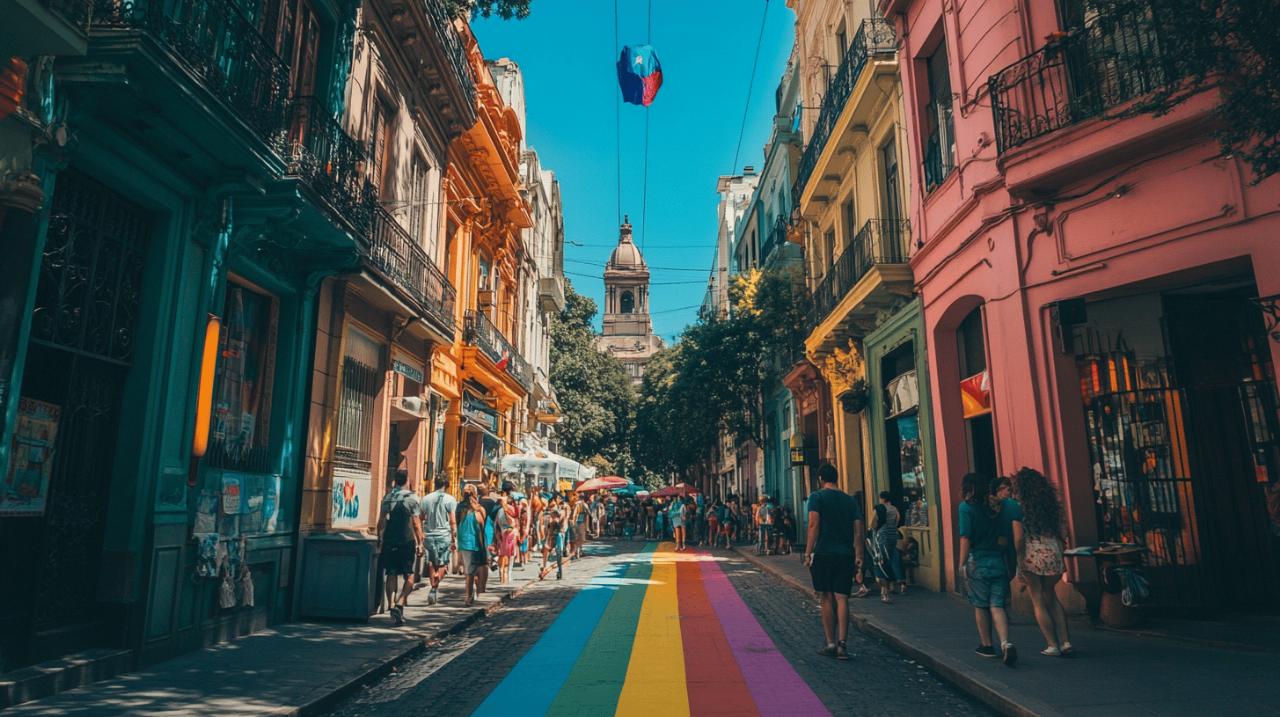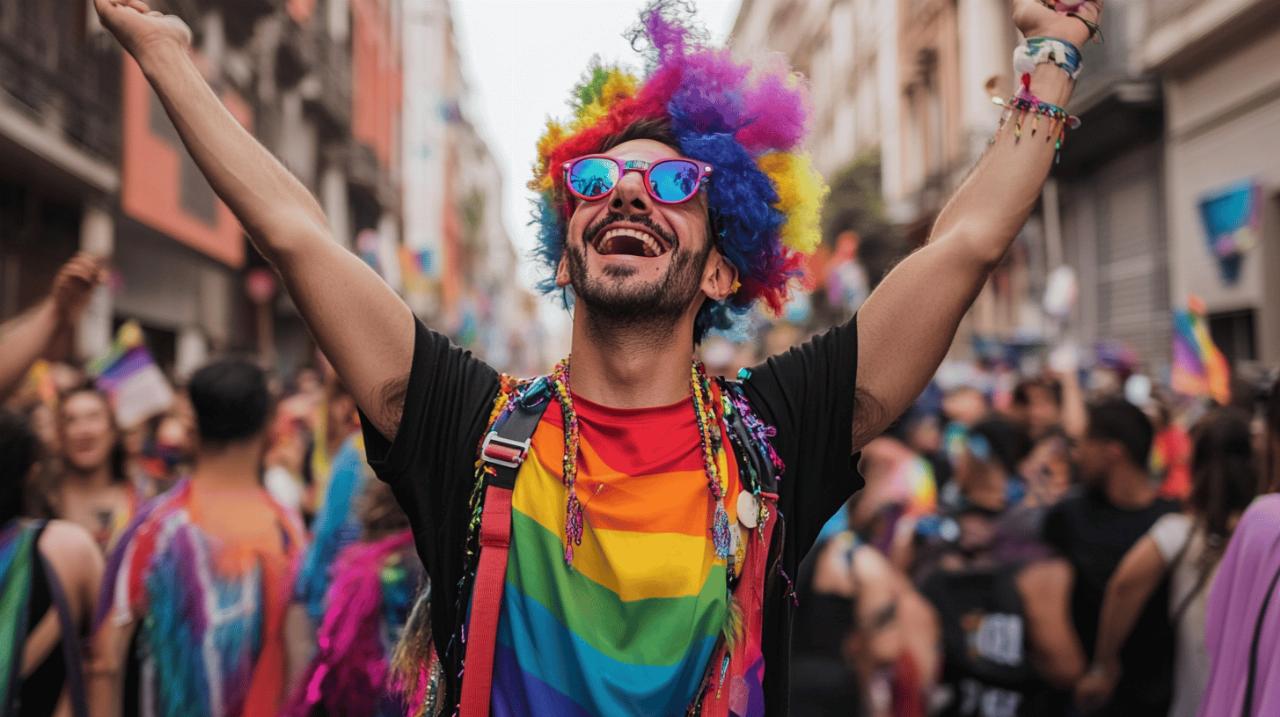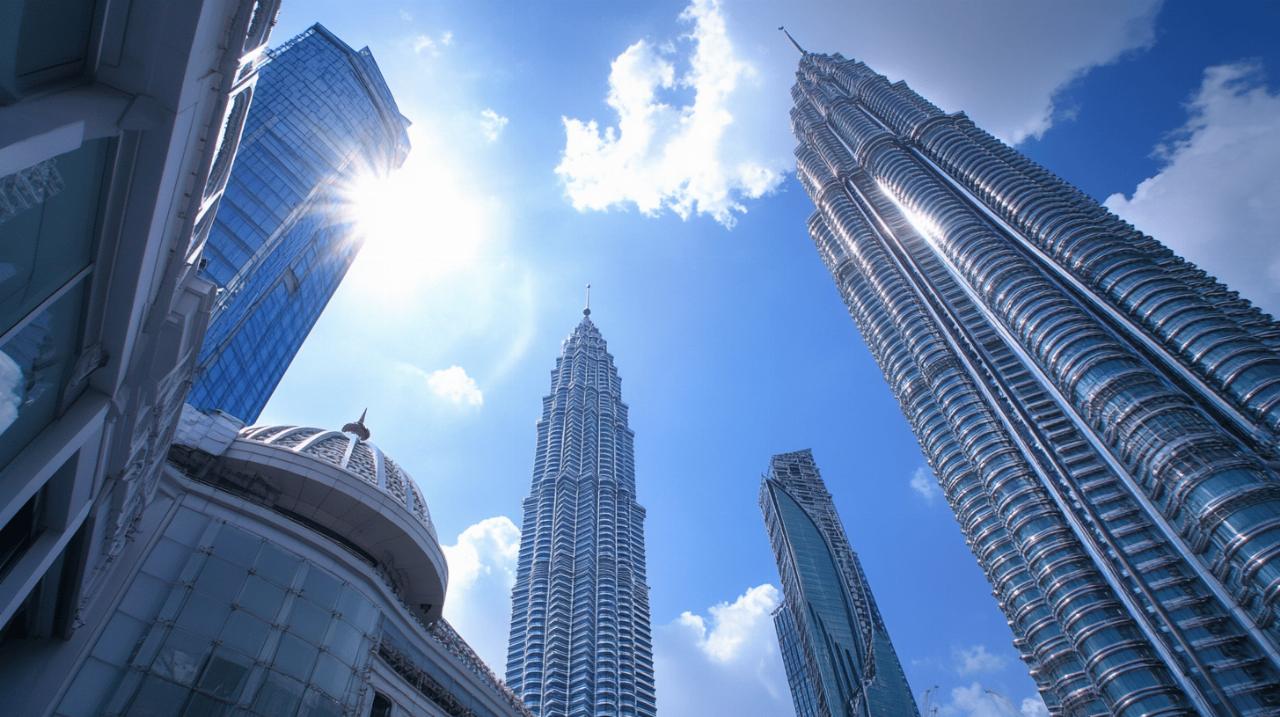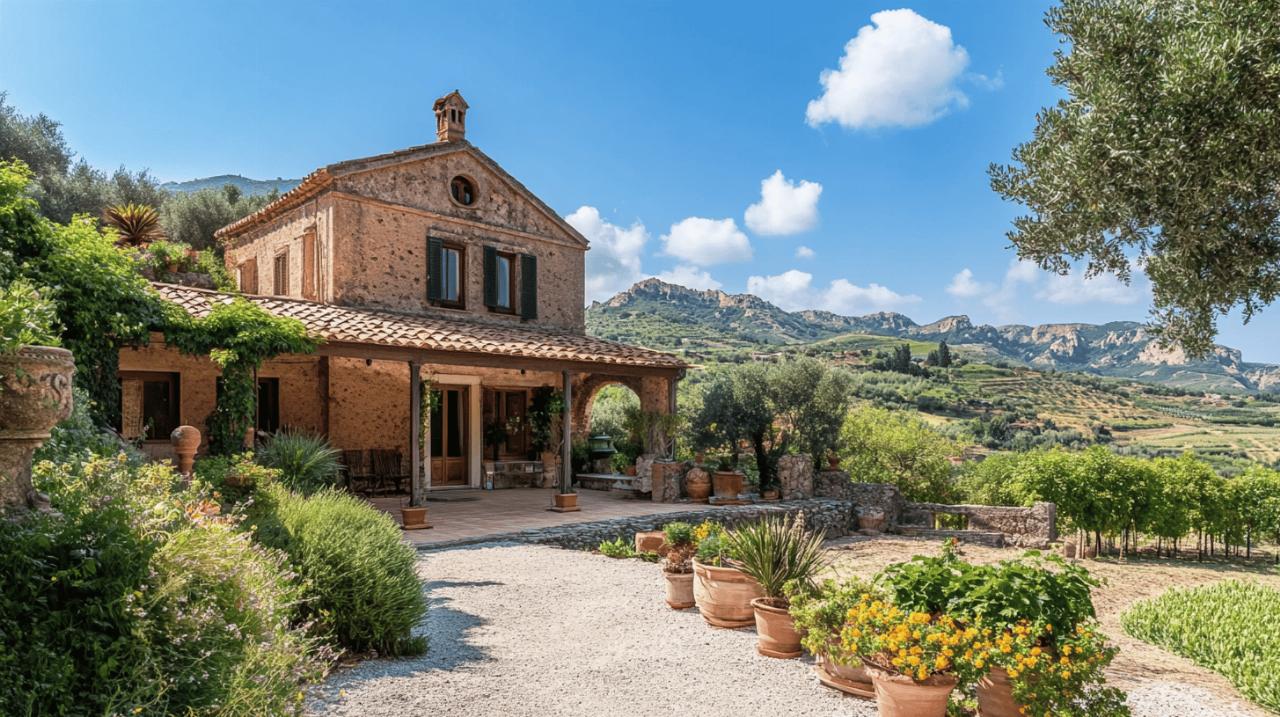Buenos Aires, a city of passion and vibrant cultural expressions, has established itself as a leading destination for LGBTQ+ travellers in South America. With its European-inspired architecture and progressive attitude, Argentina's capital offers a welcoming embrace to queer visitors from around the globe. As featured on Walkabout Travel, this cosmopolitan metropolis combines historical significance with contemporary acceptance, creating an environment where diversity thrives. Join us as we explore the colourful tapestry of LGBTQ+ life in this South American gem.
Embracing pride in argentina's capital
Argentina stands as a beacon of LGBTQ+ rights in Latin America, with Buenos Aires at the forefront of this progressive movement. The city's acceptance of diversity is not merely a modern phenomenon but rather a cultural evolution that has been decades in the making. Visitors to https://www.walkabout-travel.de/ can discover more about how this destination has become a must-visit for queer travellers seeking both historical significance and contemporary celebration.
The progressive legal framework
Argentina made history in 2010 by becoming the first country in Latin America to legalise same-sex marriage, setting a precedent for the region. This landmark legislation was the culmination of years of activism and advocacy. The country's progressive stance extends beyond marriage equality to include comprehensive anti-discrimination protections and gender identity laws that are among the most advanced in the world. This legal framework has created a foundation upon which the vibrant LGBTQ+ culture of Buenos Aires continues to flourish and evolve.
Key lgbtq+ historical landmarks
The city is dotted with significant sites that tell the story of LGBTQ+ history in Argentina. Perhaps most notable is the Carlos Jáuregui Station, a subway stop named after the renowned sexual diversity activist. Since its dedication in 2017, this station has become a symbol of recognition and acceptance, with over 300,000 daily commuters passing through a space that honours queer history. The journey of LGBTQ+ rights in Buenos Aires also traces back to 1967, when the first rights group 'Nuestro Mundo' was founded, laying groundwork for decades of activism that followed.
Vibrant neighbourhoods and social spaces
Buenos Aires offers numerous neighbourhoods where LGBTQ+ culture thrives, each with its own distinct character and charm. These areas have become gathering places for both locals and visitors seeking community and connection in the city often referred to as the 'Paris of South America'.
Palermo and san telmo: lgbtq+ hotspots
Palermo stands out as one of the most LGBTQ+-friendly districts in Buenos Aires. This trendy neighbourhood boasts street art, vegetarian and vegan dining options, and a youthful, creative energy. For around $20 USD, visitors can take guided street art tours that reveal the neighbourhood's artistic expression and cultural significance. San Telmo, with its cobblestone streets and historic architecture, offers a different but equally welcoming atmosphere. The Sunday markets here are popular gathering spots, and the area houses several queer-owned businesses, including YÖBLA.BAR, an intercultural community space that celebrates diversity in all its forms.
Inclusive cafés and cultural venues
Pride Cafe holds the distinction of being Argentina's first daytime gay bar, creating a safe space for the community to gather outside of nightlife hours. Set to reopen in August 2025, it represents the daytime social culture that complements the city's famous nightlife. Cultural venues like Casa Brandon in Villa Crespo, founded in 2005, serve as LGBTQ+ cultural centres offering everything from art exhibitions to community meetings. Maquinal – Espacio Cultural in Abasto combines art, technology, and activism to create forward-thinking queer spaces, while La Paz Arriba offers panoramic views alongside diverse cultural programming.
Colourful nightlife and entertainment
 When the sun sets, Buenos Aires truly comes alive with some of the most dynamic LGBTQ+ nightlife in South America. The city offers everything from intimate bars to massive club events that continue until dawn, catering to every preference and style.
When the sun sets, Buenos Aires truly comes alive with some of the most dynamic LGBTQ+ nightlife in South America. The city offers everything from intimate bars to massive club events that continue until dawn, catering to every preference and style.
Iconic gay clubs and bars
The nightlife scene features legendary venues like Peuteo, a gay bar that welcomes everyone from Wednesday to Sunday, opening at 6 p.m. and continuing until 3 a.m. Club Namunkurá has been hosting house music parties since 2005 at Requiem Club, creating a consistent space for dancing and connection. For women in the community, Rose Girls hosts popular parties on Thursdays and Saturdays, with Sunday events sometimes attracting over 1,000 attendees. Amerika Disco, Glam, and Contramano round out the club offerings, each with their own loyal following and unique atmosphere that contributes to the diverse nightlife landscape.
Drag shows and performance art
Performance art thrives in Buenos Aires, with Club 69 at Niceto Club standing as a Thursday night institution featuring DJ sets and spectacular performances that blend music, visual art, and theatrical elements. Fiesta Plop offers themed parties that often incorporate drag performances and costume competitions, creating immersive experiences rather than just standard nights out. The tango, traditionally danced between two men before becoming a heteronormative dance, has been reclaimed by the queer community through events celebrating queer tango, honouring the dance's true historical roots while creating contemporary spaces for expression.
Annual lgbtq+ events and celebrations
Throughout the year, Buenos Aires hosts numerous events that celebrate LGBTQ+ identity, culture, and community. These gatherings range from massive street parades to intimate cultural festivals, offering multiple ways to experience queer culture in the Argentine capital.
Buenos aires pride (marcha del orgullo)
The Buenos Aires Pride March, locally known as Marcha del Orgullo, takes place on the first Saturday of November each year. What began in 1992 with approximately 300 participants has grown into a major celebration attracting around 200,000 people, placing it among the top 50 Pride events worldwide. The march traditionally begins at Casa Rosada, the iconic presidential palace, symbolically asserting the community's political presence and rights. The event combines political demonstration with joyful celebration, featuring music, performances, and speeches that highlight both achievements and ongoing struggles.
Queer film festivals and cultural events
The cultural calendar includes the GNetwork360 conference, an international gathering focused on LGBTQ+ travel that brings industry professionals and travellers to Buenos Aires. Sports events also create community spaces, with groups like Dogos Natación celebrating 10 years of providing LGBTQ+ swimming opportunities, including for trans and non-binary people. This sports group recently hosted IGLA 2024, an international LGBTQ+ aquatics competition. Yacarés BA Civil Association offers basketball, volleyball, soccer, and functional training as they celebrate their fifth anniversary, demonstrating how sports can create inclusive community spaces outside the traditional club and bar scene.




